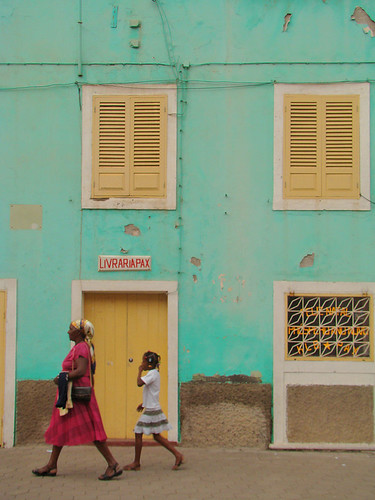All About H. Hatterr is a novel I bought after seeing it recommended somewhere — the complete review, I think. It is a modernist novel written in 1948 in a colloquial Indian English laced with bits of slang, Shakespeare, legal jargon and so on. I’m not in a position to judge the relationship between the language of the book and the English of India, but Salman Rushdie is quoted on the back cover:
Hatterr’s dazzling, puzzling, leaping prose is the first genuine effort to go beyond the Englishness of the English language…. This is the ‘babu English,’ the semi-literate, half-learned English of the bazaars, transmuted by erudition, highbrow monkeying around, and the impish magic of Desani’s unique phrasing and rhythm into an entirely new kind of literary voice.
It would be interesting to read the whole article which that comes from, but it’s hidden behind the New Yorker’s pay wall.
The book is narrated by the H. Hatterr of the title, the son of a European merchant seaman and a woman from Burma, raised and educated in missionary schools in Calcutta. It’s anecdotal and episodic in structure; there isn’t, at least for me at first reading, any kind of overarching plot. Picaresque might be a good word for it.

It is somewhat ‘difficult’ — it’s not for people who like their prose plain. But googling around while writing this post I’ve seen it compared to Ulysses and Finnegans Wake, and it’s certainly not that difficult. The prose is sometimes elaborate and colourful but otherwise fairly conventional: it’s not all stream-of-consciousnessy or anything. And there’s not a great deal of vocabulary from Indian languages. There’s more English public-school slang than there is Hindi.
PRESUMPTION: ‘Kismet’, i.e., fate — if at all anything, and as potent as suspected for centuries — is a dam’ baffling thing!
It defies a feller’s rational: his entire conception as to his soma, pneuma, and psyche!
Why did a feller like me commit matrimony with a femme fatale like Mrs H. Hatterr (née Rialto), the waxed Kiss-curl?
A personal query, but I don’t mind answering…
If only I could!
All I know is that I wanted to raise a family: add to the world’s vital statistics and legitimate: have a niche in the community, for my own kid, to hand out the wager till the end. And since you can’t achieve this without a wife — the neighbours wouldn’t let you! the police wouldn’t let you! — I equipped myself with the blarney-phrases, convinced this female that she was real jam, had me led to the middle aisle and gave the ready ‘I do’ to the amenwallah her brother had hired for the occasion.
This I did, knowing, hell, that between us was all the temperamental difference in the world!
Till death us do part! this museum-piece and I! And that promise — what a stingo! — after a conflict dating back to the donkey’s Sundays!
The female — contrast? — was poles apart: though, between the cur Jenkins, me and the Duke Humphrey, it did seem once that she was going to win my regards for good, by delivering me an heir-presumptive — my own piccolo le fils — to survive me (and be added to the looney-bin). But despite days and days of biological observation and anticipation — the wasted reference to the obstetric table and pre-occupation with the signs of labour — it didn’t come off. (Backed the wrong filly, or, maybe, something the matter with me as create-or!)
You probably have a pretty good idea whether that’s the kind of thing you like. Personally I enjoyed it, stylistically; occasionally there would be a particularly dense paragraph or two and I would glaze over a bit, but more often it was lively and funny.
My only reservation really is the one I have about a lot of these less traditional novels: I think perhaps the whole is less than the sum of its parts. I think people often overstate the importance of plots, but they are at least one way of holding a book together. Still, I’m glad I read it.
» The picture, ‘a Sadhu‘, is © Chris de Rham and used under a CC by-nc-nd licence. Sadhus feature quite heavily in the book.




